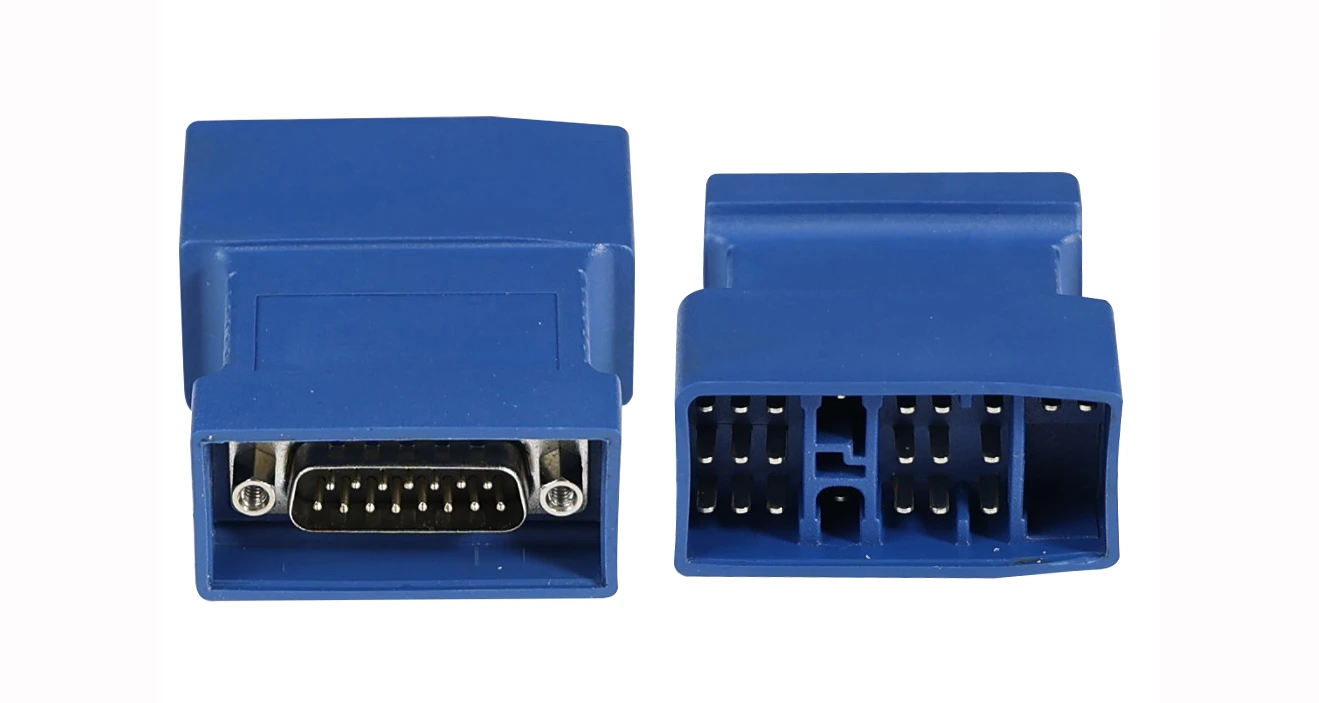Introduction: Why You Need a Toyota 22-Pin to DB15Pin Adapter
Are you a professional mechanic, automotive engineer, or dedicated DIY enthusiast working with Toyota vehicles? Many older Toyota models, like the Supra, Celica, and certain Camry models from the 90s and early 2000s, use a unique 22-pin diagnostic port. This port is different from modern OBD2 standards.
To connect modern diagnostic scanners with a standard DB15Pin interface to these vehicles, the Toyota 22-Pin to DB15Pin Adapter is essential. It ensures accurate ECU diagnostics and prevents miscommunication errors, protecting your equipment.
Core Benefits:
- Designed specifically for Toyota vehicles with a 22-pin diagnostic port.
- Seamlessly connects to standard DB15Pin diagnostic tools
- High-quality materials ensure durability and signal stability.
- Fully tested and compliant with major international standards like RoHS, REACH, ISO, and UL.
Check the Toyota 22-Pin to DB15Pin Adapter Product Page
How the Toyota 22-Pin to DB15Pin Adapter Works
Adapter Structure and Design
Our adapter features a compact, fully plastic-encased design:
- 22-pin female Toyota connector: Precisely fits the vehicle’s diagnostic port.
- DB15Pin male connector: Compatible with most professional ECU diagnostic tools.
- Durable PVC housing: Protects internal wiring from dust, moisture, and wear.
- RoHS & CE compliance: Ensures environmentally safe manufacturing processes.
Compatibility and Application
This adapter is engineered for:
- Older Toyota vehicles using a 22-pin port instead of a 16-pin OBD2 port.
- Professional diagnostic tools with DB15Pin interfaces.
- Tasks like ECU programming, data logging, and fault code reading.
It’s ideal for B2B automotive service providers, research institutions, and DIY mechanics needing precise diagnostics.
Step-by-Step Guide: Using the Toyota 22-Pin to DB15Pin Adapter
Step 1 – Identify the Diagnostic Port
Locate the 22-pin diagnostic port in your Toyota vehicle (usually in the engine bay). Always consult your vehicle manual for exact location.
- Toyota OBD Documentation on Scribd
- ToyotaNation Forum – Connecting Terminals TE1/E1
- For a visual guide, check out this Toyota 22-Pin Diagnostic Port Tutorial on YouTube
Step 2 – Connect the Adapter
- Plug the 22-pin female side into the vehicle’s diagnostic port.
- Connect the DB15Pin male end to your diagnostic tool.
- Ensure a tight, stable connection.
Step 3 – Perform ECU Diagnostics
Launch your diagnostic software.
Read fault codes, monitor live data, or perform ECU programming.
Follow safety guidelines; avoid excessive force.
Step 4 – Post-Use Handling
- Disconnect gently.
- Store in a dry, dust-free area.
- Periodically inspect connectors for wear or damage.
Related Product – Toyota OBD2 Splitter Cable
Key Advantages of Our Adapter
- 20+ Years Factory Experience: Real factory, not a trading company. Two decades of experience in custom molding and mass production ensure top quality.
- Unmatched Reliability: 100% tested before leaving the facility for flawless performance.
- Certified Quality: Complies with RoHS, REACH, ISO 9001, ISO 14001, IATF16949, CE, UL. ISO 9001 = strict quality management; UL = electrical safety assurance.
- Customization Experts: OEM/ODM solutions available for specific pin configurations, cable lengths, and labeling.
Tips for Best Performance
- Use genuine, high-quality adapters to avoid ECU damage.
- Avoid connecting the adapter while ignition is on unless specified.
- Keep connectors clean and corrosion-free.
- Check software updates for diagnostic tools regularly.
FAQ – Toyota 22-Pin to DB15Pin Adapter
Q1: Will this adapter work with all Toyota models?
A1: Supports most Toyota vehicles with a 22-pin diagnostic port. Always confirm compatibility.
Q2: Is it safe with aftermarket diagnostic tools?
A2: Yes, if the tool is compatible with DB15Pin connectors.
Q3: How durable is the adapter?
A3: Fully plastic-encased, tested repeatedly, meets UL, CE, and international safety standards.
Q4: Can I request a custom version?
A4: Yes, OEM/ODM customization available.
Q5: How to contact your team?
A5: Via Contact Form or WhatsApp: Get Technical Support / Inquiries
Q6: Does it comply with international standards?
A6: Certified RoHS, REACH, ISO 9001, ISO 14001, IATF16949, CE, UL. ISO 9001 = quality management; UL = electrical safety.
Q7: Can it be used for ECU programming?
A7: Yes, designed for ECU diagnostics, programming, and testing.
Q8: How to maintain the adapter?
A8: Keep clean and dry; avoid excessive force; store dust-free; inspect periodically.
Q9: Difference from standard OBD2 cable?
A9: Bridges Toyota 22-pin ports and modern DB15Pin tools.
Q10: Is technical guidance available?
A10: Yes, via Contact Form or WhatsApp: Get Technical Support.
Internal & External Resources
- ISO – iso.org
- IATF – iatfglobaloversight.org
- SAE – sae.org/standards
- RoHS/REACH – ec.europa.eu
- UL – ul.com
Call-to-Action
Ready to optimize your Toyota ECU diagnostics workflow? Trust our 20+ years factory experience for certified, tested, and reliable solutions.



